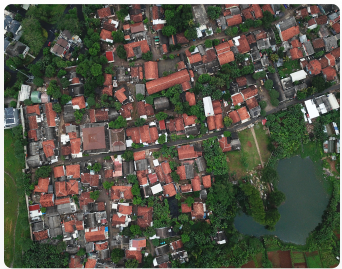NEWS & ARTICLES
Electricity utilization patterns for FCT, Abuja
September 22, 2019
5 MIN READ

NEWS & ARTICLES
Electricity utilization patterns for FCT, Abuja
September 22, 2019
5 MIN READ

As the population of the world increases, the demand for energy is increasing at a fast pace. Energy is needed for economic development and social welfare, and is one of the most dominant forms of energy in human society. It plays a very important role in the socioeconomic and technological development of a state and indeed every nation. Nigeria, like most developing countries, has been experiencing a widening gap between energy demand and supply (especially electricity). Electricity demand in Nigeria far outstrips the supply that is very epileptic in nature. The Federal Capital Territory (FCT) Abuja, Nigeria, occupies a strategic position, role and relevance to national development being the federal capital of the country. The trend of energy consumption in the FCT is different from the pattern of other states. This is because of some factors that are peculiar to FCT. These include the population growth rate of FCT, infrastructural development, income level and lifestyle of the residents. Because of its fast growing status, energy demand, especially electricity demand, has skyrocketed beyond the present supply level.

Electricity consumption in the FCT in the recent years has only in three economic sectors namely industry, services and household, with the services sector consuming the highest of the three. Projections also show that services sector had the highest consumption; about 50% of the total electricity consumed in the FCT. From 2025, electricity will be consumed in the transport sector probably through the use of electric cars and trains or trams. But in the far future, maybe around 2050, it is anticipated that electricity may be used for freight in the FCT. Projections show that by 2030, there should have been adequate and reliable electricity in the FCT. The determinants of electricity demand in the FCT include; population, level of economic activities, life-style of the residents, availability of infrastructure etc.
Projections show that electricity consumed in the services sector will keep increasing from base year till 2035. The implication is that by 2035, the energy requirements of the services sector will probably be fully met using electricity in the service sector especially as other sources of energy including the consumption of non-commercial (traditional) energy form will likely stop beyond 2035 because of their unsustainable nature and attendant environmental consequences. Electricity consumption in the house-hold sector in the FCT is also expected to increase. This is owing to the fact that the population of both residential houses and people will keep increasing, thereby increasing the demand for electricity in the FCT. The industrial sector of the FCT will also witness a significant increase in its electricity demand. This point is obvious considering that the city is having few industries at the present. However, considering the expected contribution of the industrial sector to the FCT economy, the electricity consumption in the industrial sector will keep increasing.
Energy Planning is a process of establishing a conceptual framework of organizing the future development of energy systems based on past and present consumption trends and factors or parameters driving energy in that society. We suggest the following recommendations, in order to achieve this sustainable energy planning in the FCT; putting in place FCT electricity expansion plan, establishing a mechanism for gathering electricity consumption data, introducing demand side management, and provision of funds for more research and training of professionals in energy planning.

NOVEMBER 19, 2018
Energy consumption in transport sector in Nigeria
Energy is essential to our way of life. It is consumed by nearly all the activities of our economy, and households consume it every day for our personal comfort and for most of our travel...

FEBRUARY 11, 2019
Petroleum products utilization in FCT, Abuja
The role of energy in economic development, social welfare, and environmental sustainability increases everyday with growing population and economic activities.

DECEMBER 29, 2019
The need for smart communities in Nigeria
When a neighborhood takes the initiative to address these problems, with the aid of technology and efficient contemporary methods, that we have ourselves a smart community.